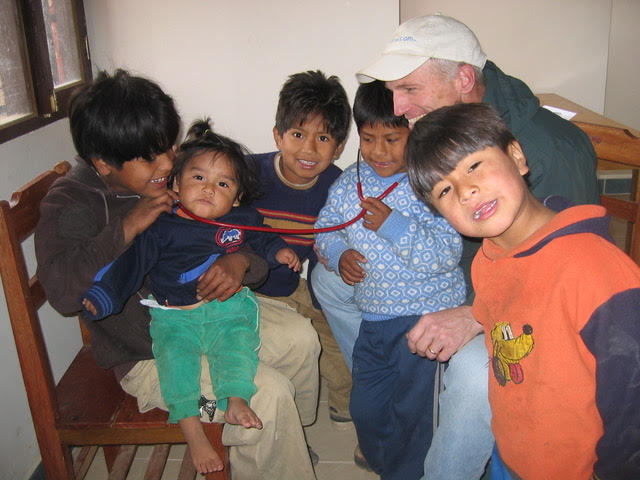Physicians Craving Connection
I went for a walk with a close friend the other day on a rare sunny winter afternoon in Seattle, when many others were doing the same. My friend and I greeted each other with masks secured, keeping our distance, and nodding while we told each other how wonderful it was to have a break from the isolation of the pandemic. We walked and talked, awkwardly navigating around the other people, wondering if it was OK to take our masks off for a bit or not. No one made eye contact with us. No one greeted us or even said a word. Everyone was doing their best to avoid one other, fearing that any one of us could possibly be the source of a severe COVID-19 infection which would put us in the ICU on a ventilator.
Normally, I would have greeted my friend with a huge warm hug and a broad smile. We would have walked and talked periodically looking at each other, greeting others as they passed by, perhaps shaking people’s hands and remarking on how beautiful the weather was.
Earlier that same day, I was working in a pediatric office alongside my colleagues, all wearing our masks, keeping our distance and donning shields whenever attending to mildly sick children. I tried to connect with parents and kids in the same way I used to before the pandemic. But instead of greeting each person with a smile, shaking their hands or receiving hugs from little ones, I stood on the opposite side of the room, only moving closer to examine small patients while trying not to scare them with my PPE and nasal swabs.
What a strange way I find myself now interacting with the world! What a shift in perspective from seeing everyone I meet as a chance to brighten my day to seeing each person as a threat to my health. This has taken a great toll on my mental health and outlook on life. Even worse, I am getting used to it.
As medical providers, the vast majority of us were drawn to a profession which brings us to intimate, privileged relationships with others in order to be of service in some way. Many of the structures we work under have put up barriers blocking the development of those relationships – shorter visit times, electronic medical records, more administrative tasks, etc., causing increased stress and burnout even before the pandemic. Now it seems what little opportunity we had to make those connections are being squeezed out by the restrictions and fears of COVID. We keep our distance from our patients while listening to their gut-wrenching stories of suffering brought on by the pandemic – economic hardship, dying family members, and fears of the future. This is all taking a major toll on us as providers and human beings.
What can we do to cope with this alternate reality and sustain ourselves until we are able to interact in a more life-giving way? I don’t claim to have the magic answer, but I have started a few practices which have helped.
First, I’ve accepted the fact that I am only capable of accomplishing about half of what my pre-pandemic self was able to get done in the course of a day. This is taking into account that doing anything to care for my kids who are stuck at home, running any errands, and preparing any meals all count as accomplishments.
Second, I have had to triple the amount of self-care I practice and expand the scope. My primary practice is mindful self-compassion (https://centerformsc.org/), which has turned out to be a true lifesaver. When I practice giving myself the same compassion I have for my patients and loved ones, I become much more available to others. I’m more empathic, a better listener, and much more forgiving of myself and others.
Third, I make a point to connect with people who are truly life-giving and authentically honest. I schedule weekly walks or phone conversations with friends who lift me up rather than bring me down.
As we completed our walk, my friend asked me, “What are you most looking forward to once the pandemic is over?” I looked at him and said, “Giving everyone I meet a big hug, putting my arm around them, and seeing their beautiful smiles.”
Joe Sherman, MD is a pediatrician, professional development coach, and consultant to individuals and healthcare organizations in the areas of cross-cultural medicine, leadership, and provider well-being. His mission is to help health professionals rediscover the joy of practicing medicine. Reach him at joe@joeshermanmd.com


2 Comments
Looking forward to reading more. Great article. Really thank you! Fantastic. Frederique Clair Ulysses
Thanks so much.